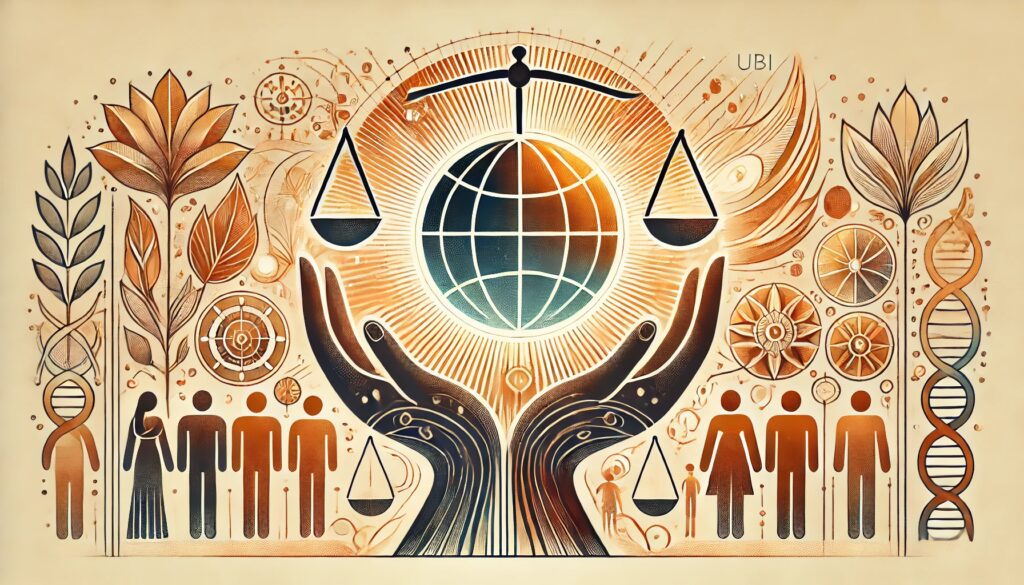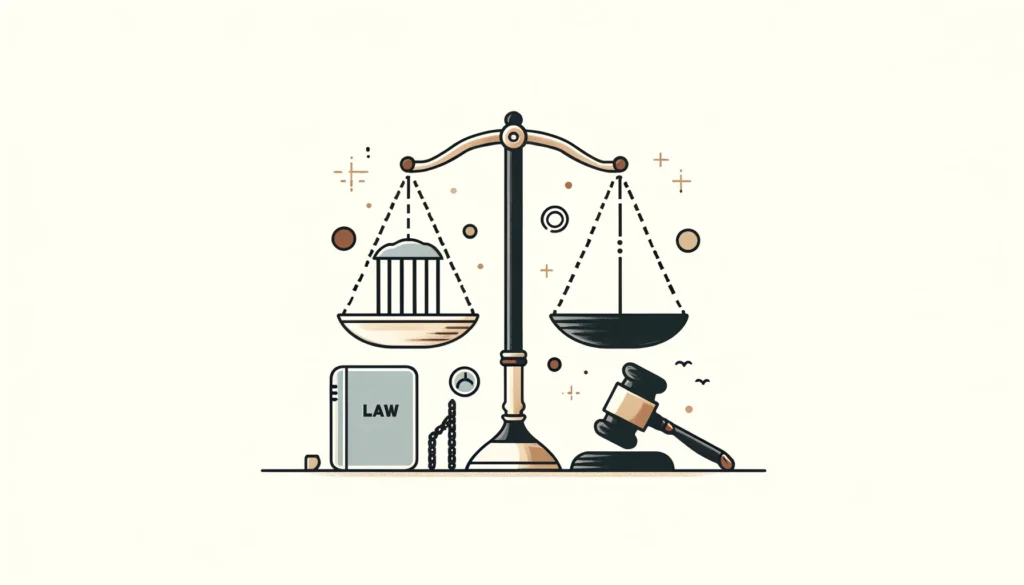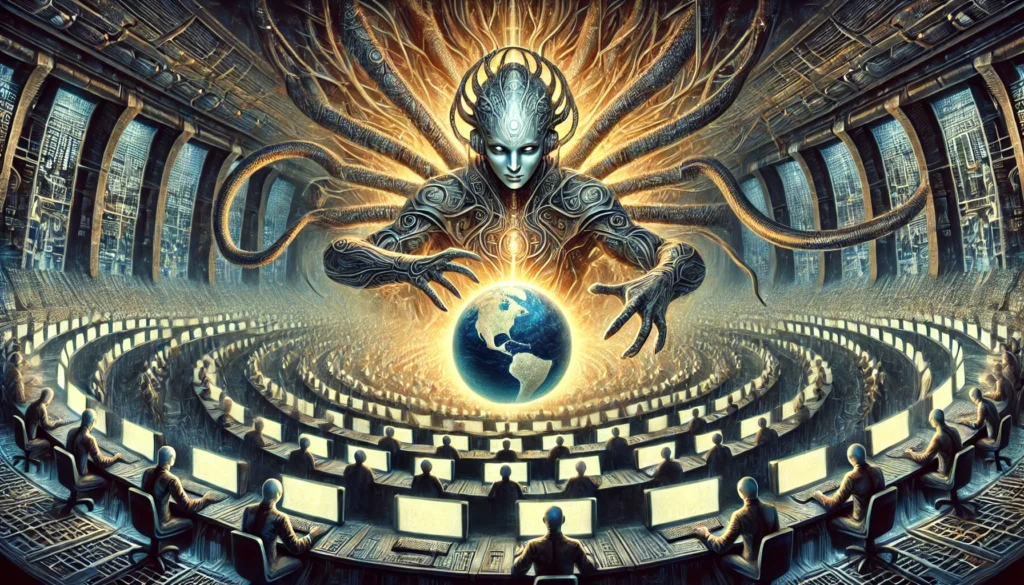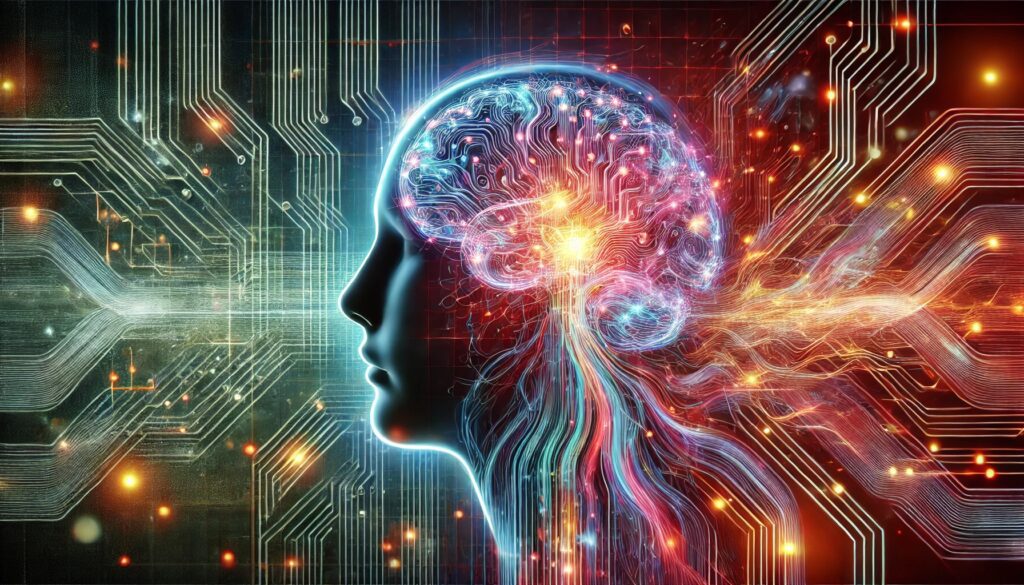
Artificial Intelligence (AI) and Universal Basic Income (UBI) are two of the most discussed topics in modern economic and technological discourse. As AI technology advances at an exponential pace, transforming industries and automating jobs, the idea of UBI has gained traction as a potential solution to the economic challenges that may arise from this technological revolution. The relationship between AI and UBI is not merely speculative; it’s becoming increasingly relevant as society grapples with the implications of AI-driven changes in the workforce.
How AI is Redefining Work
AI is rapidly redefining what work looks like in the 21st century. The rise of automation, powered by AI and machine learning algorithms, is leading to the displacement of jobs across various sectors. For instance, AI is revolutionizing manufacturing through the use of robotics, reducing the need for human labor in assembly lines. Similarly, in the transportation industry, self-driving vehicles powered by AI are expected to disrupt traditional driving jobs.
The gig economy is also being reshaped by AI, with platforms like Uber and Lyft utilizing AI for dynamic pricing and route optimization. Even highly skilled professions are not immune; AI systems capable of performing legal research, diagnosing diseases, and even generating art and music are emerging. This trend raises critical questions about the future of work and the potential for large-scale job displacement.
What is Universal Basic Income (UBI)?
Universal Basic Income is a social policy concept where all citizens receive a regular, unconditional payment from the government, regardless of their employment status. The amount provided is typically designed to cover basic living expenses, ensuring that everyone has access to the necessities of life. The idea of UBI is not new; it has been debated by economists and policymakers for centuries. However, the accelerating pace of AI-driven automation has brought renewed interest in UBI as a potential solution to the economic challenges posed by technological unemployment.
AI-Induced Job Displacement: The Need for UBI
The potential for AI-induced job displacement is one of the most compelling arguments for Universal Basic Income. As AI continues to automate tasks previously performed by humans, entire job categories are at risk of becoming obsolete. This is particularly true in industries where repetitive tasks are prevalent, such as manufacturing, retail, and customer service.
A study by the McKinsey Global Institute suggests that up to 800 million jobs could be lost globally to automation by 2030. While new jobs will inevitably be created, the transition period could be tumultuous, with significant social and economic disruptions. UBI is proposed as a safety net that could cushion the impact of this transition, providing financial stability to those affected by job displacement.
The Economic Redistribution Role of UBI
AI has the potential to create unprecedented wealth, but there is growing concern that this wealth may become concentrated in the hands of a few, particularly those who own and control AI technologies. The rise of tech giants like Amazon, Google, and Facebook, which leverage AI to dominate their respective markets, is already leading to increased economic inequality.
Universal Basic Income is seen by some as a means of economic redistribution. By providing all citizens with a regular income, UBI ensures that the wealth generated by AI is shared more equitably across society. This could help address the growing income inequality and provide a more stable economic foundation for the broader population.
Long-Term Economic Considerations
In the long run, the effectiveness of UBI as an economic stimulus would depend on how it is funded and implemented. If UBI is financed through increased taxation or borrowing, the long-term economic impact could be different. Higher taxes might dampen the economic benefits by reducing disposable income elsewhere in the economy. Alternatively, if funded by reallocating existing government spending, the impact on other public services could be a concern.
Furthermore, the universal nature of UBI means that it could reach segments of the population who may not necessarily need additional income. Some argue that a more targeted approach might be more efficient, ensuring that funds go directly to those who would spend it, thereby maximizing the stimulus effect.
AI and the Future of Work: Complementary, Not Competitive
While the narrative around AI often focuses on job displacement, it’s important to recognize that AI can also complement human work rather than replace it. In many industries, AI is being used to enhance productivity by taking over mundane, repetitive tasks, allowing humans to focus on more creative, strategic, and complex activities.
For example, in the healthcare industry, AI can assist doctors by analyzing large datasets to identify patterns and recommend treatments, freeing up more time for patient care. In the creative industries, AI-generated content can serve as a starting point for human artists, writers, and musicians to build upon.
However, for this complementary relationship to be effective, there needs to be a safety net in place. UBI could provide this safety net, ensuring that workers have the financial security to adapt to the changing nature of work, whether that means retraining for new roles, pursuing further education, or exploring entrepreneurial endeavors.
The Ethical Implications of AI and UBI
The intersection of AI and Universal Basic Income raises significant ethical questions. Should society prioritize technological progress even if it leads to mass unemployment? How should the wealth generated by AI be distributed? What responsibilities do governments and corporations have in ensuring that the benefits of AI are shared equitably?
These questions are not just theoretical; they have real-world implications for policy-making and social cohesion. Universal Basic Income offers a potential solution to some of these ethical dilemmas. By providing all citizens with a basic income, UBI can help mitigate the negative social impacts of AI, ensuring that everyone has access to the benefits of technological progress.
The Global Perspective: UBI Experiments
Around the world, several countries and regions are experimenting with Universal Basic Income to explore its feasibility and potential impacts. Finland’s UBI pilot program, which ran from 2017 to 2018, provided 2,000 unemployed individuals with a monthly income of €560, regardless of whether they found work. The results were promising, with participants reporting improved well-being, reduced stress, and a greater sense of security.
In the United States, the city of Stockton, California, launched a similar experiment, providing $500 per month to 125 residents for two years. Preliminary findings from the Stockton experiment suggest that UBI can improve mental health, reduce financial insecurity, and even encourage recipients to pursue further education or training.
These experiments provide valuable insights into the potential of UBI to address the challenges posed by AI-driven automation. However, they also highlight the complexities involved in implementing UBI on a larger scale, including the need for sustainable funding mechanisms and careful consideration of the social and economic context.
Challenges and Criticisms of UBI
Despite its potential benefits, Universal Basic Income is not without its challenges and criticisms. One of the most common criticisms is that UBI could disincentivize work, leading to a decline in productivity and economic growth. Critics argue that if people receive a regular income without having to work for it, they may be less motivated to seek employment or contribute to the economy.
Another challenge is the cost of implementing UBI on a national or global scale. Providing every citizen with a regular income would require significant financial resources, which could strain government budgets. Some propose funding UBI through taxes on AI-driven industries, while others suggest using the profits generated by AI technologies to finance the program.
Proponents of UBI argue that these challenges can be addressed through careful policy design and that the benefits of UBI outweigh the potential drawbacks. They point to the success of pilot programs and the potential for UBI to reduce poverty, improve well-being, and create a more equitable society.
AI, UBI, and the Future Social Contract
The relationship between AI and Universal Basic Income is more than just a policy debate; it’s a discussion about the future social contract. As AI continues to shape our world, there is a growing need for a new understanding of work, wealth, and social responsibility.
UBI could be a key component of this new social contract, providing a foundation of financial security in a world where traditional jobs may become less common. By ensuring that everyone has access to basic financial resources, UBI can help create a more equitable and sustainable society in the age of AI.
The Role of Governments and Corporations in the AI-UBI Nexus
Governments and corporations will play a crucial role in determining the future relationship between AI and Universal Basic Income. Governments will need to create policies that support the implementation of UBI, including determining the appropriate level of income, funding mechanisms, and eligibility criteria.
Corporations, particularly those in the tech industry, will also have a significant role to play. As the primary beneficiaries of AI-driven automation, these companies have a responsibility to ensure that the wealth generated by AI is shared more broadly. Some have suggested that tech companies should contribute to UBI through a tax on AI profits or by directly funding UBI initiatives.
Conclusion: A Balanced Approach
The relationship between Artificial Intelligence and Universal Basic Income is complex and multifaceted. As AI continues to revolutionize industries and reshape the economy, the need for UBI as a safety net and economic stabilizer becomes increasingly apparent.
While AI offers immense potential for innovation and economic growth, it also poses significant challenges, particularly in terms of job displacement and income inequality. Universal Basic Income offers a potential solution to these challenges, providing a foundation of financial security that could help individuals and societies adapt to the changes brought about by AI.
As we move forward, it will be crucial to find a balance that maximizes the benefits of AI while ensuring that everyone has the opportunity to thrive in a rapidly changing world. UBI could be a key component of this balance, helping to create a more equitable and sustainable future in the age of AI.
Resources
Explore more about the future of AI and its impact on society.
- “AI, Automation, and the Economy” (White House Report)
- A detailed report from the White House during the Obama administration, which explores the potential impact of AI and automation on the economy, including the consideration of Universal Basic Income.
- Read the report
- “The Future of Work: Robots, AI, and Automation” by Darrell M. West
- This book delves into how automation and AI will impact the workforce and discusses various policy solutions, including UBI.
- Available on Amazon
- “Universal Basic Income: A Guide to Navigating Concepts, Evidence, and Practices” (World Bank Group)
- A comprehensive guide by the World Bank that examines the evidence and practices related to UBI, including its potential role in an AI-driven economy.
- World Bank Document
- “AI and the Future of Jobs” (McKinsey Global Institute Report)
- A report from McKinsey that explores the future of jobs in the context of AI and automation, offering insights into potential job displacement and the role of UBI.
- McKinsey Report
- “Universal Basic Income in the Age of Automation” by Ryan Avent
- An article that discusses the potential of UBI as a solution to the economic challenges posed by AI and automation.
- The Economist Article
- “The Ethics of Artificial Intelligence and the Role of Universal Basic Income” by Markus Müller
- A journal article exploring the ethical implications of AI and how UBI could help address some of these challenges.
- ResearchGate Article
- “Stockton Economic Empowerment Demonstration (SEED)”
- A summary of the findings from Stockton, California’s UBI experiment, providing real-world insights into the impact of UBI on economic stability.
- SEED Project Website
- “The Fourth Industrial Revolution” by Klaus Schwab
- A book that discusses how the fourth industrial revolution, driven by AI, will impact society, including the potential need for UBI.
- Available on Amazon
These resources offer a blend of academic research, policy analysis, and real-world examples that provide a deeper understanding of the intersection between AI and UBI.





